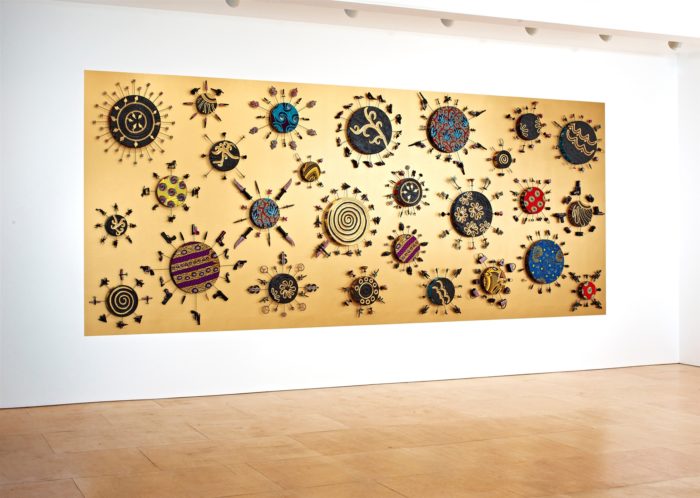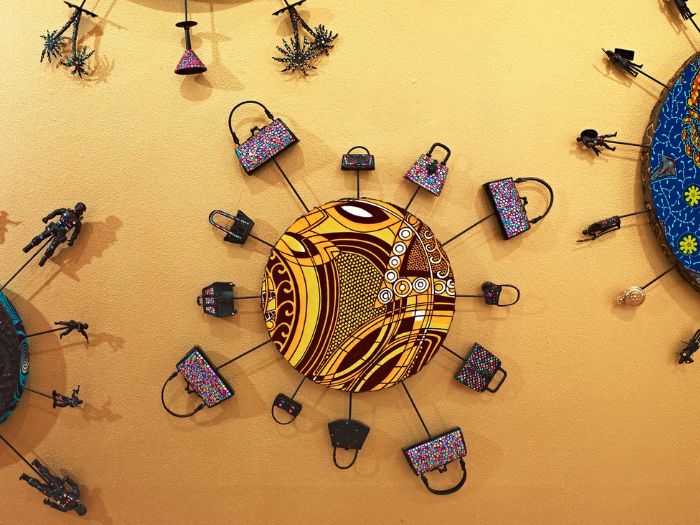5. Bling Painting
Yinka Shonibare CBE
Yinka Shonibare CBE
Audio recording
Audio transcription
Along the gallery back wall is one of British Nigerian artist Yinka Shonibare CBE’s most visually opulent works, titled Bling Painting. A golden mural is the backdrop to twenty-seven round disks bejeweled with a miniature showcase of decadence. Each disk flowers with representations of war, luxury, and religion. Toy guns, military and fashion model figurines, shoes, handbags, faux diamonds, crucifixes, and the Holy Grail are spray-painted black and studded with rhinestones, as they carousel around brightly patterned ‘African’ batik fabric centers.
The origin of batik fabric was Indonesian design, mass-produced by the Dutch and eventually sold to colonized countries in West Africa. In the 1960’s the material became a new sign of African identity and independence, as freedom from colonial control swept across the continent. The fabric has become emblematic of Shonibare’s practice, closely tied to his own self-recognition as a ‘post-colonial’ hybrid—being first-generation British-born and raised in Lagos, Nigeria.
Through this elaborate display and collection of objects, Shonibare explores contemporary worship of commodities. Bling Painting stands as a sharp commentary on the excesses of the financial industry and the pursuit of power and money that contributed to the Cypriot and global financial crisis of 2012-2013. This work was first shown in March of 2013, only a few weeks before the announcement of a €10 billion bailout of the Republic of Cyprus banking system. The multitude of swirling panels represent the hypnotic fetishization of money and war. We simultaneously desire and repel such objects of glittering beauty.
Over the past decades, Shonibare has become well known for his exploration of colonialism and post-colonialism within the contemporary context of globalization. He examines issues of race, class and cultural identity through painting, sculpture, photography, film, and installation. Through his work, he offers a keen political commentary on the tangled interrelationship between Africa and Europe and their respective economic and political histories. Using wry citations of Western art history and literature, Shonibare questions the validity of contemporary cultural and national identities.
Please head towards gallery two through the open archway.

